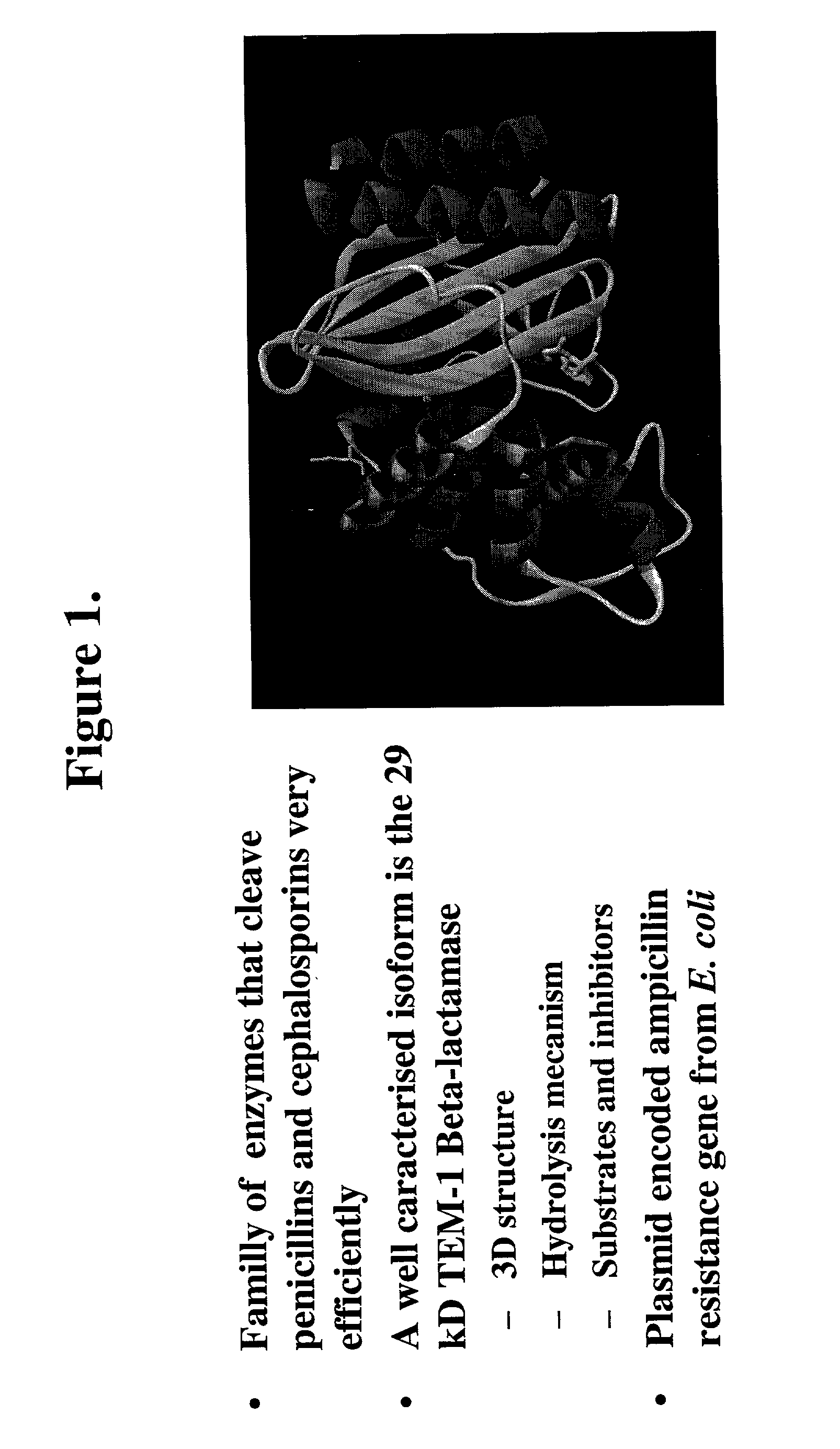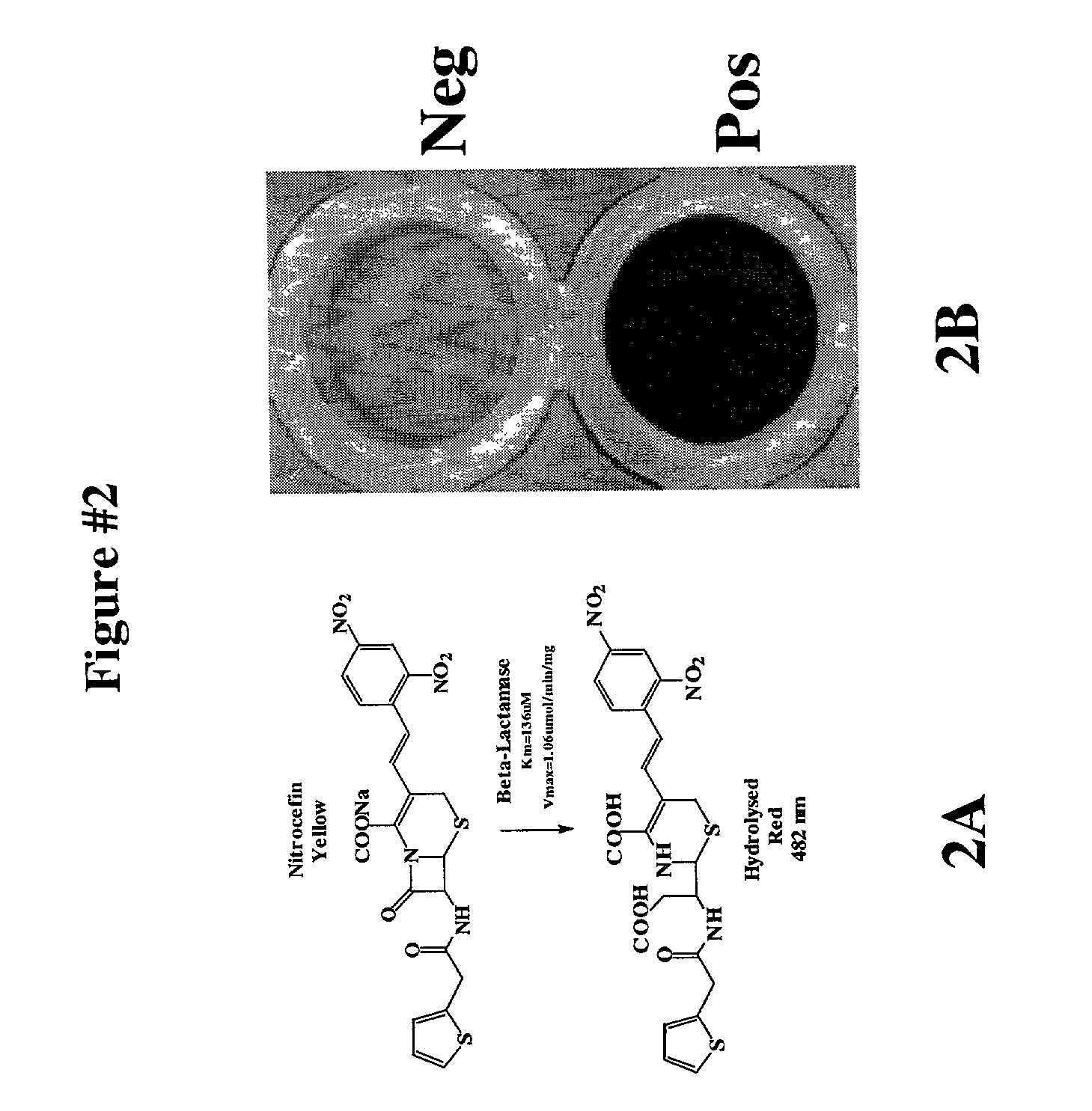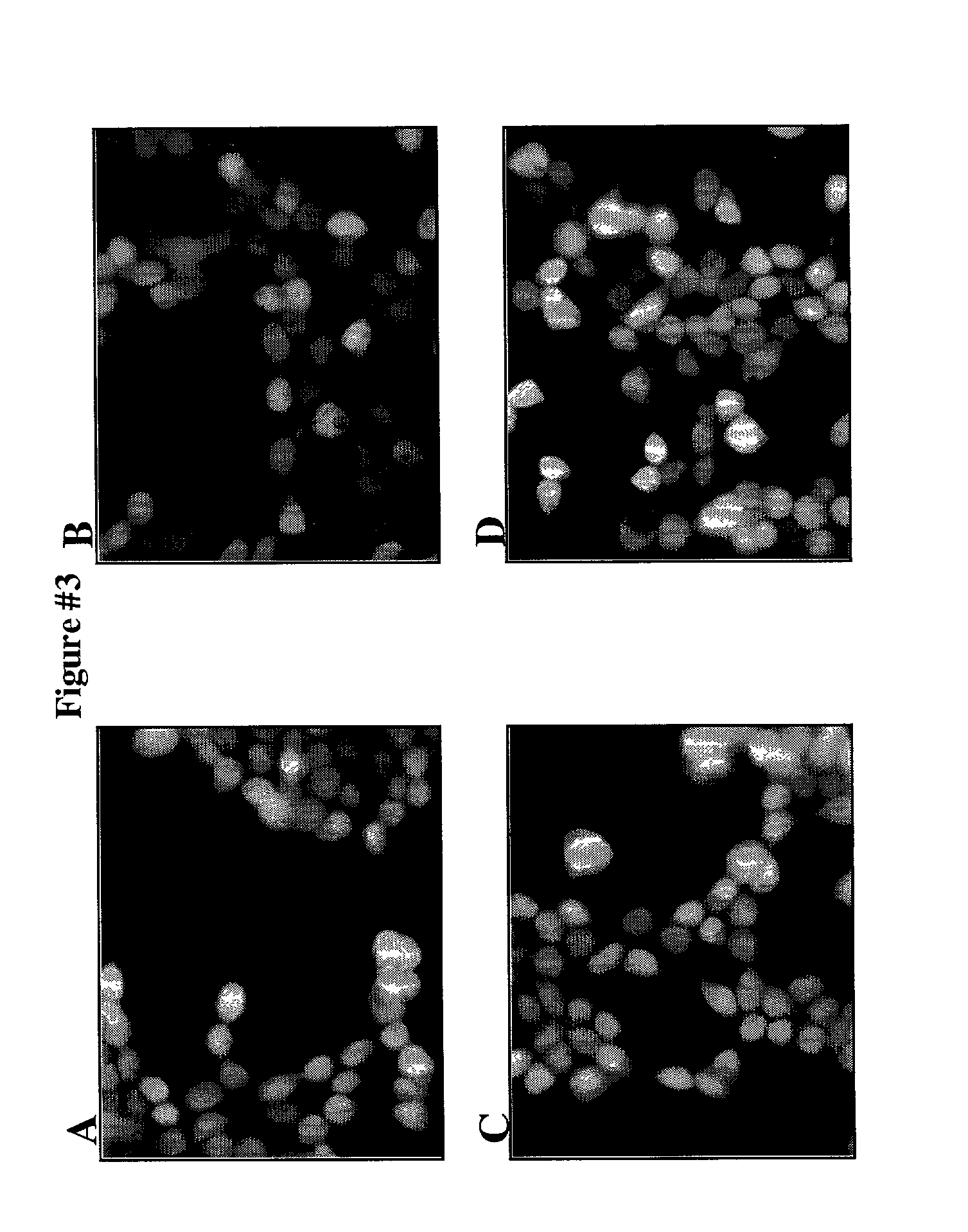Protein fragment complementation assay (PCA) for the detection of protein-protein, protein-small molecule and protein nucleic acid interactions based on the E. coli TEM-1 beta-lactamase
a technology of tem1 beta-lactamase and protein fragments, which is applied in the field of protein complementation assays (pca) based on tem1 beta-lactamase, to achieve the effect of enhancing the efficiency of tem1 beta-lactamase pca
- Summary
- Abstract
- Description
- Claims
- Application Information
AI Technical Summary
Benefits of technology
Problems solved by technology
Method used
Image
Examples
example 1
Materials and Methods
[0035] DNA Constructs
[0036] GCN4 Zipper Dimerization System
[0037] Fragments of .beta.-lactamase (F[1] and F[2]) were amplified by PCR using Progene (Mendel Scientific) from the ampicillin resistance gene of the vector pQE-32 (Qiagen) with the following oligos: BLF[1] forward:AAAAAAAAGCGG-CCGCACACCCAGAAACGCTGGT; BLF[1] reverse: AAACTCGAGTTA-GCCAGTTAATAGTTTGCG; BLF[2] forward: AAAAAAAAGCGGCCGCACTAC-TT-ACTCTAGCTTCCC; BLF[2] reverse: AAACTCGAGTTACCAATGCTTAAT-CAGTGAG. The PCR products were introduced at the 3' end of a flexible linker of five amino acids (Gly-Gly-Gly-Gly-Ser) in a previously described construct consisting of GCN4 leucine zipper-5a.a. in pMT3 vector (a eukaryotic expression vector) resulting in the following constructs: Zip-5a.a.-BLF[1] and Zip-5a.a.-BLF[2] with a five amino acids linker.
example 2
FKBP and FRB Dimerization System
[0038] The PCR product were introduced at the 3' end of a flexible linker of five amino acids (Gly-Gly-Gly-Gly-Ser) in a previously described construct consisting of FRB(FKBP-rapamycin binding domain of FRAP; FRAP is the FKBP-rapamycin binding protein)-5a.a. and FKBP (the FK506 binding protein)-5a.a. in pMT3 vector (ref. 10) resulting in the constructs FRB-5a.a.BLF[1] and FKBP-5a.a.-BLF[2] respectively. BLF[1] and BLF[2] correspond respectively to residues 23-197 and 198-286 of TEM-1.beta.-lactamase.
example 3
Cell Culture and Transfection
[0039] HEK 293 T cells were split 24 h before transfection at 1.times.10.sup.5 in 12-well plates in DMEM (Life Technologies; Grand Island, N.Y.) which was enriched with 10% cosmic calf serum (HyClone). Cells were transfected with the different constructs by using Fugene reagent (Roche) according to the manufacturer's instructions.
PUM
| Property | Measurement | Unit |
|---|---|---|
| Flexibility | aaaaa | aaaaa |
| Ratio | aaaaa | aaaaa |
| Acidity | aaaaa | aaaaa |
Abstract
Description
Claims
Application Information
 Login to View More
Login to View More - R&D
- Intellectual Property
- Life Sciences
- Materials
- Tech Scout
- Unparalleled Data Quality
- Higher Quality Content
- 60% Fewer Hallucinations
Browse by: Latest US Patents, China's latest patents, Technical Efficacy Thesaurus, Application Domain, Technology Topic, Popular Technical Reports.
© 2025 PatSnap. All rights reserved.Legal|Privacy policy|Modern Slavery Act Transparency Statement|Sitemap|About US| Contact US: help@patsnap.com



